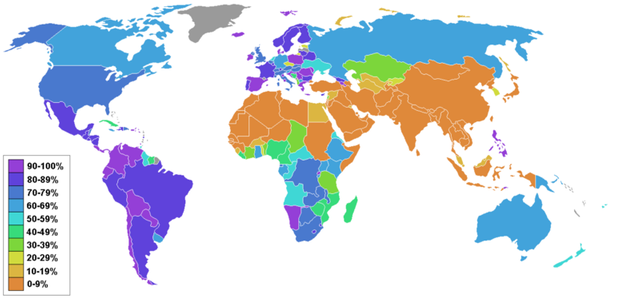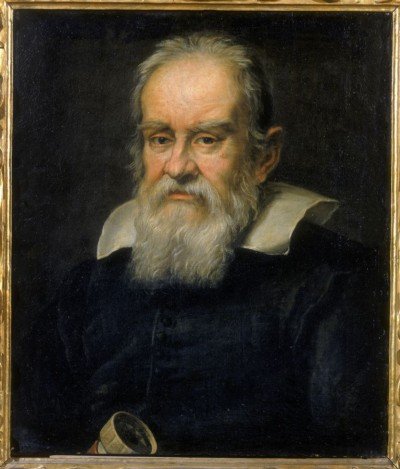To Non-Christians: Why you should learn about Christianity
To Non-Christians: Why you should learn about Christianity
An article for truth seekers, atheists, agnostics, and my younger self.
Who this is for:
Serious thinkers who think Christianity is too stupid to give any piss.
TL;DR
1. If Christianity is fake, it's the best scam in our history.
2. You should know about the scam, it helps you to understand human.
3. Disclaimer: I am a Christian.
Yea. I know what’s in your mind. Christianity is a fable, and it’s at least
apocryphal, if not stupid. Who’s going to believe a virgin can give birth? It’s
way saner to think Jesus’s father had been cheated on and he was too naive to
believe the otherwise. He was such a miserable man.
Let’s assume Christianity is nothing more than a delusional story.
If so, you should learn about Christianity now — it’s the most gargantuan fraud
in the history of mankind. Understanding it would give you endless insights into
humans’ mind: How we are deceived, manipulated, and our fear of death is
exploited craftily?
This shit is packed with so much deceptive power. It’s wickedly admirable.

Christianity percentage by country — That’s quite a lot of people! Source:
https://commons.wikimedia.org/wiki/File:Christianity_percentage_by_country.png
People praise Steve Jobs for his reality distortion field that lures people
to buy his products. But his degree of reality distortion was minuscule in the
face of Christianity. He managed to convince about 700 million people to buy an
iPhone, which is a well-built product, yet the latter duped 1/3 of world
population to base their hope and life on nothing but a made up story. Who’s
the master deceiver here?
Some statistics and facts would help to show how delusionally influential
Christianity is. Out of the 7.2 billion people in the world, 2.4 billions of
them are adherents, that’s a hell lot of people. Well, you could say half of the
world population have IQ under 100, and they’re gullible because of their fear
of death — Christianity provides a brainless and sweet answer, so they believed
readily.
No. That’s not the case.
When I was an agnostic, I had the honor to have stayed in Oxford, one of the
hubs for the brightest minds on the planet. I met so many people who are way
more thoughtful and logically meticulous than myself. We had a lot of
long-winded discussions. I wasn’t convinced by then — but at least I was
impressed by the intellectual rigor of their cases. I tried to argue why it is
more rational to stay agnostic, and I couldn’t convince them either. I came to
the realization that arguments of both sides are based on antithetical
assumptions about the world. These assumptions can hardly be proven true of
false — and developing on these assumptions can result in either agnosticism,
Christianity, or other religious stances. At least, I think Christianity is as
rationally tenable as agnosticism. Anyway, I ain’t going to talk about the
reasonings here — here we assume Chrisianity by no means is real, and there are
loads of good resources for this purpose.



Some of the brightest minds in our history who are Christian: Nicholas
Copernicus, Galileo Galilei, and Rene Descartes
Well, you might ask: “who you are?” You’re just a random guy on the internet
and why should I believe in your experience? Fine, fine. Let’s look at some
objective facts. More than half (65.4%) of Nobel prize laureates are Christian.
Christian
sciencetists include pioneers in various scientific fields, including Galileo
Galilei, René Descartes, Nicholas Copernicus, and other. Our world wouldn’t be
the same literally without these great minds. Many atheists criticize
Christianity for hindering scientific development, but ironically Christianity
was one of the major impetus behind renaissance
movement
which directly led to the development of modern science, for those scientists
endeavored to understand natural order because they believed the natural order
was created by god, and therefore, is worth investigating. These chaps are not
stupid people, for sure.
You may think that Christianity is stupid, but you can’t deny the fact that a
substantial portion of the most intelligent people believed this “stupid”
religion and these people are way smarter than you and me.
It’s creepy, isn’t it? Why did so many giants fell for this falsehood?
It’s a deception of uncanny power, for the fact that it hacks into the
brightest minds. If you think of other cults: which cult has outspoken
adherents in science? More of the adherents of these cults are chicks who
believe offering their pussies to the cult leader would grant them entrance to
heaven. The cleverest person in a cult is probably the cult leader, for he/she
is smart enough to build a cult. But no, their cults don’t really work for sane
people. Christianity, as a fraud, is fundamentally more powerful than all frauds
in the history. There are so much to learn from it. If you’re keen to influence
people, instead of reading The Art of the Deal by Donald Trump, or the renowned
How to Win Friends and Influence People — learn Christianity, you’ll understand
human manipulation at its best.
So — why don’t you start to learn about Christianity now? Not to believe it,
rather, just to understand humans’ nature and vulnerabilities better.
Ah, by the way, don’t go to atheist memes Facebook page
to learn about Christianity.
It’s funny but not manipulative enough. Read the bible or
C.S. Lewis’s Mere
Christianity
— these are way better.
So, shall we start learning?
Please think about it a minute or so, then read on
Don’t just scroll through… you need to really think for this to work…
“No. I don’t want to pick up the bible or learn anything about it.” — It this
your thought?
Okay, let’s stop assuming Christianity is fake and do some reasoning here.
Christianity can only be either real or unreal. For both cases, you have
plenty of reasons to understand it. Needless to say, if it’s real, you’re
learning about the truth of the world and your life. If it’s unreal, it’s the
best case study of human manipulation on an unparalleled scale.
“No… no still no… I don’t wanna read the bible…”
“Why?”
Can you figure out an answer to the “why” question? If not so, why you are
reluctant?
Are decisions not to understand Christianity grounded on reasons? Hell no,
unless you’re not interested in human at all.
I have shown compelling reasons why learning Christianity is a worthy
investment in all cases (even if it’s fake). If you’re still not planning to
learn about it, I doubt if your decision not so stems from something other than
legit reasons.
It’s something else. You’re afraid.
“What if it turns out to be real?”
“What if it’s more than an unreasonable
fable?”
Okay. Up to this point of the essay, I think you might have guessed correctly
that I am a Christian. In fact, before I converted to Christianity, I had quite
a long history of being an avid atheist and agnostic. I know that uneasy feeling
when approaching Christianity. It was almost like a needle tickling on the
softest spot of your mind: it was a combination of anxiety, unease, and fear
directly towards your existential faculty of your mind, as if almost you hoped
it so bad to be false. But where does the feeling that deters yourself from
Christianity come from? As a Christian, I think maybe it’s the work of the
devils. I know the readers of this essay are probably not Christians, though
actually, I am not very sure about this, so please don’t accept my answer easily
and start panicking for it.
But where do the feelings come from?
It doesn’t matter actually. But don’t you feel it’s quite dangerous to have
some irrational biases stand amidst you and certain beliefs that is either true
or at least overwhelmingly influential? It’s dangerous. You thought that
you’re rationally neglecting Christianity, but you’re not (Unless you
understand Christianity pretty well and decided to reject it, then the arguments
in this essay don’t apply to you, and maybe you’re right :) ). You’re
irrational and making decisions based on your likes and dislikes: you dislike
Christianity, so you decide to stay away from it.
If the points in this essay resonate with you, and only if it does, you may want
to give Christianity a serious kick. Learn it, and judge with the best of your
rationality whether it’s the true religion or not. If you feel some irrational
non-sense stands between you and Christianity, making you especially unwilling
to learn it, try to ask for god’s help: say something like “God, I beg you to
bestow me courage and wisdom to find the truth.”
I know you’re probably thinking “what the fuck… I won’t pray” now when I asked
you to pray, feeling more reluctant than ever. It’s okay, it’s normal. I
remberer I kept saying “What the heck I was doing?” to myself the first time I
prayed.
You’ll lose nothing out of it even if Christianity is utter bullshit, you’re
just stupid, and no worries, you’re no more stupid than many of the Nobel prize
winners. I believe if you have the determination to find the truth and a
disinterested heart, you’ll eventually get closer to the truth.
Don’t believe in Christianity. Find the truth. If the truth is in
Christianity, you’ll believe in Christianity.
What’s next?
- I recommend you to pick up the Mere
Christianity
book. It’s a pleasent and provoking read regardless you’re Christian or not. - Feel free to comment! I will share my journey to faith as best as I can.
Challenges also welcomed :) - Give this article some claps or share it — let it reach more people in need
Originally published on Medium - click to read more goodies on philosophy and psychology

What do you believe @kychan1996?
as said in the article, I am a christian :)
Your post is simply an extended argument from authority. Sure, Galilei, Descartes, and Copernicus believed in Christian god, but it doesn't mean anything except that they couldn't explain some stuff and used the concept of god to fill the holes in their knowledge. (Ironically, I just watched Neil deGrasse Tyson talking about these guys and their god of the gaps beliefs.)
I've learned the hard way that it's the facts that matter, not opinions.
Thank you for the comment! Nevertheless, the proposition of the article is vastly different from one that appeals to authority. Argument from authority means substantiating a conclusion base on the endorsement of (often irrelevant) authorities. (e.g. Galilei believes in Christianity, therefore Christianity is correct). However, my post merely argued for Christianity WORTH ATTENTION because many esteemed and intelligent individuals believe in it. This is different from saying Christianity is true, thus my post doesn'tconstitute the appeal to authority fallacy.